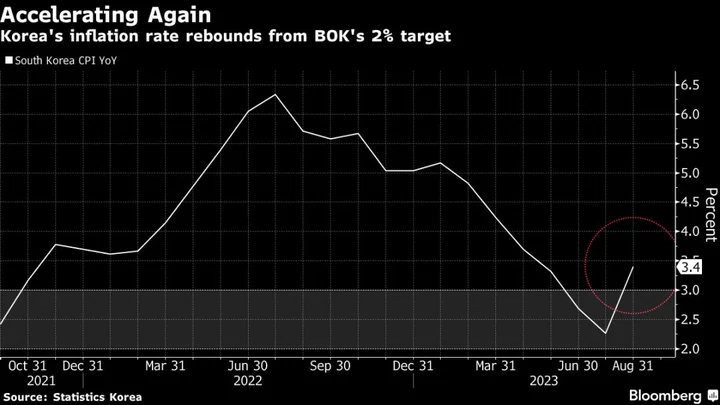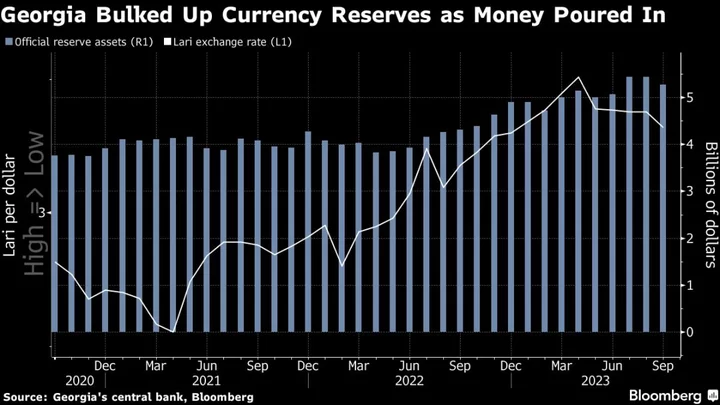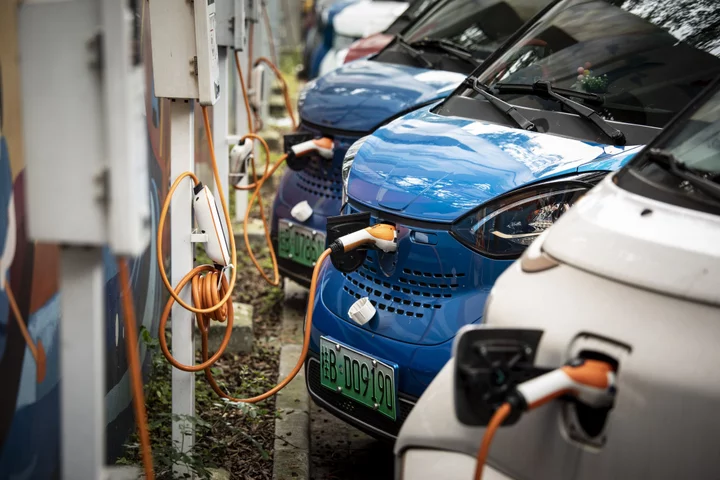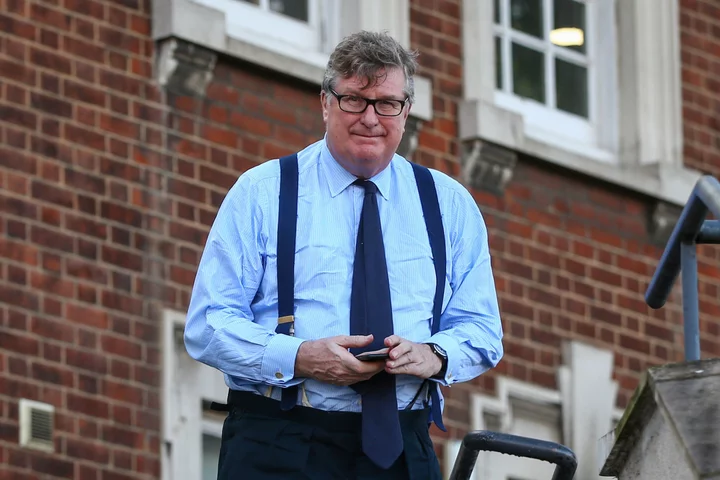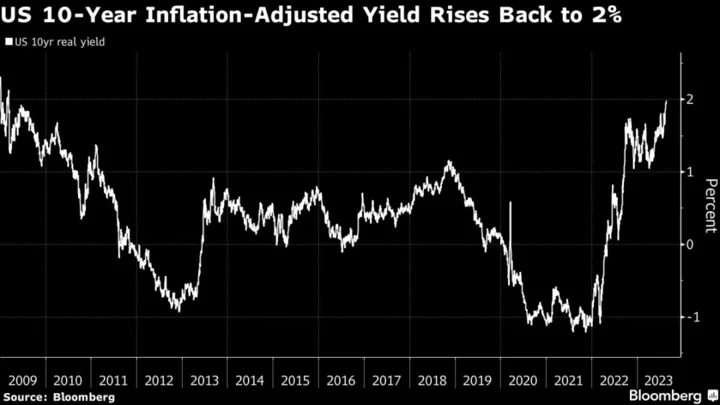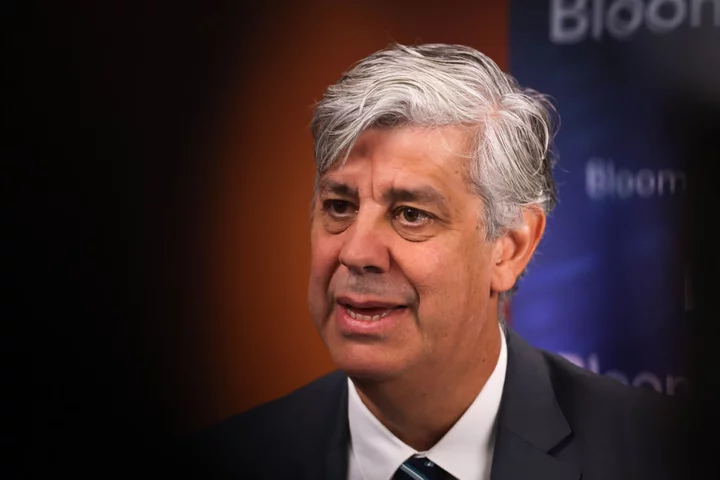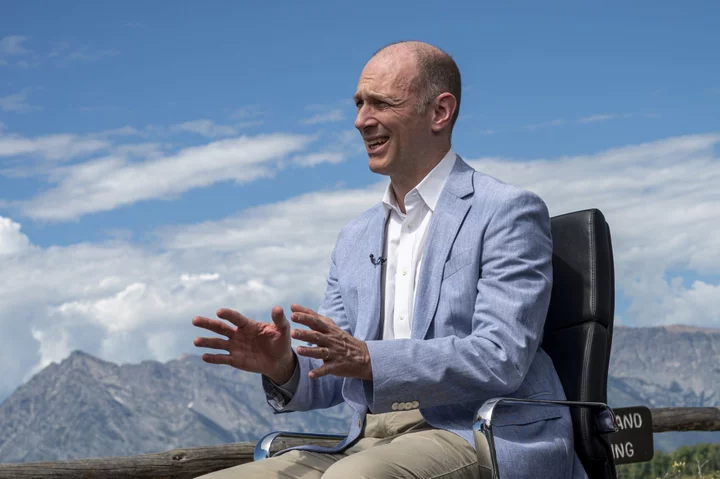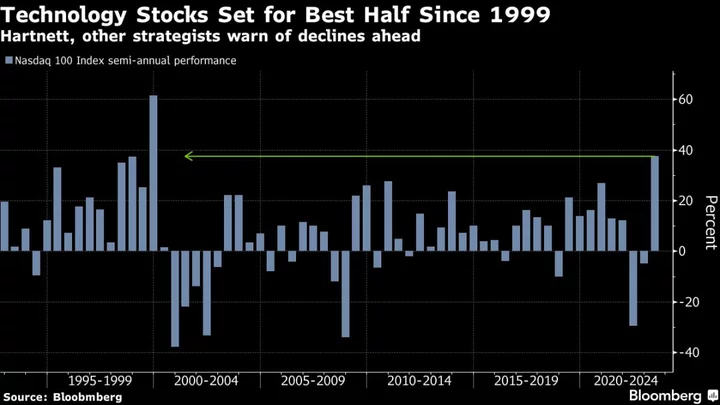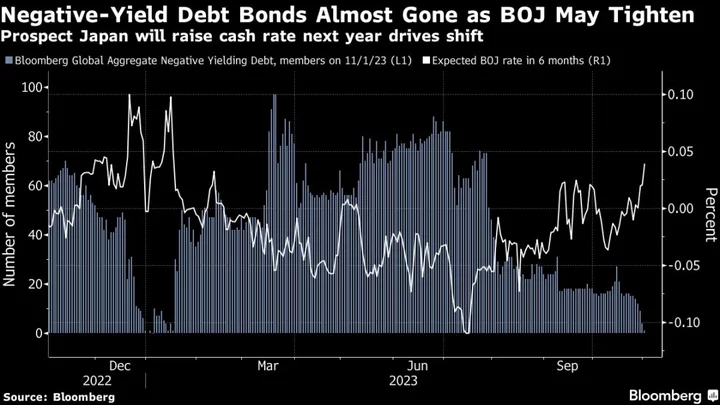South Korea’s inflation outstripped forecasts in August partly on the back of higher energy costs, reinforcing the case for the central bank to keep the door open to further policy tightening to rein in prices.
Consumer prices advanced 3.4% from a year earlier, quickening from 2.3% in July, the statistics office reported Tuesday. Economists surveyed by Bloomberg had forecast inflation would accelerate to 2.9%.
The Bank of Korea is keeping its options open for potential rate hikes until it’s confident price pressures are well under control. Board members raised the key rate by 300 basis points from 2021 and have stood pat since the last hike in January, but they’re retained a hawkish tilt.
The inflation rate is expected to fluctuate around 3% in the fourth quarter, the BOK said in a statement, adding that it sees core inflation as continuing to slow.
Growing household debt is one reason the BOK is expected to keep the tightening bias and hold the key rate at the restrictive level of 3.5%, if not higher. Governor Rhee Chang-yong last month urged caution against buying property at a time when mortgage rates may stay elevated for an extended period.
“It doesn’t seem like there’ll be a big reason for the BOK to start cutting rates anytime soon,” Park Hee-chan, an economist at Mirae Asset Daewoo, said. “It’s likely a hold for the rest of the year.”
What Bloomberg Economics Says...
“A surprisingly sharp resurgence in South Korea’s headline inflation gives the central bank reason to keep its policy rate higher for longer.”
— Hyosung Kwon, economist
To read the full report, click here
Inflation is likely to start stabilizing from October as seasonal factors soften, Vice Finance Minister Kim Byounghwan said in a statement. The rise in August inflation reflects large increases in international oil prices from mid-July and the hot weather that fueled costs for agricultural products, he said.
Meanwhile, recent data have shown signs of slowing business activity. Factory output fell again in July to reach its longest stretch of declines in decades as the trade-reliant nation struggles with exports amid a global slowdown.
The slump in exports will probably ease this month, Finance Minister Choo Kyung-ho said Monday. Policymakers are hoping exports will help Korea’s economy grow this year in line with current forecasts of 1.4% after authorities were forced to trim estimates repeatedly in recent months in light of disappointing data.
The BOK released updated growth data confirming that Korea’s economy expanded 0.6% last quarter from the previous three months, as reported in preliminary figures.
The BOK’s hawkish hold in recent months is in line with efforts by global central banks to stay on alert as energy prices pick up while housing bubbles show signs of inflating again. Investors remain on their toes as they wait to see whether the Federal Reserve extends its tightening cycle on Sept. 21. For now traders see the Fed holding steady after jobs data for August showed the US labor market undergoing a controlled cooling.
Further policy tightening would put more pressure on the BOK to consider hiking to shore up the local currency against the dollar and help ease the burden of higher costs for the food and energy imports that Korea relies on.
(Updates with comments from economist and finance ministry official)

